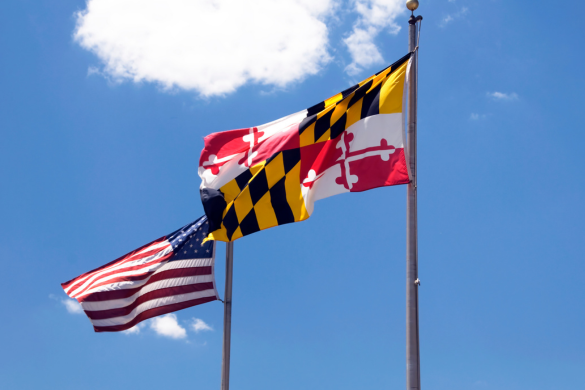After a long fight, Maryland’s sick-leave law is now in effect, requiring certain employers to offer sick and safe leave to their employees under the Maryland Healthy Working Families Act.
With the law, employers with at least 15 employees must now provide paid leave, while employers with 15 or fewer employees only have to provide unpaid leave. The number of employees is determined by calculating the average monthly employee count (full-time, part-time, temporary and seasonal) for the prior 12- month period.
Under the Maryland law, sick and safe leave can be used for:
- caring for or treat an employee’s mental or physical illness, injury, or condition;
- obtaining preventive medical care for an employee or employee’s family member:
- caring for a family member* with a mental or physical illness, injury, or condition;
- maternity/paternity leave;
- domestic violence, sexual assault, and stalking situations against the employee or the employee’s family member;
- medical or mental health attention;
- services from a victim services organization;
- legal services or proceedings;
- the time the employee has temporarily relocated.
(A family member is defined to include a child, parent, grandparent, grandchild and sibling. The definition includes biological, adopted, foster, stepchild and legal guardians.)
The law does not apply to workers who:
- regularly work fewer than 12 hours a week;
- are under the age of 18;
- are independent contractors;
- work in the agricultural sector on an agricultural operation;
- work on an as-needed basis in the health or human services industry; and
- possibly some Union construction workers whose Union has agreed expressly to waive the Act’s requirements.
Leave may be used in the smallest increment the employer’s payroll system uses. An employer may require employees to take sick/safe leave in up to four (4) hour increments.
The law includes a number of provisions governing sick and safe leave accrual and tracking. Sick and safe leave must be paid at the employees’ normal wage rate. Sick/safe leave for tipped employees, however, must be paid at the minimum wage rate.
Employees accrue leave at a rate of at least one (1) hour for every 30 hours worked. An employee who is exempt from the FLSA’s overtime requirements is presumed to work 40 hours each workweek.
An employer may cap the amount of sick/safe leave an employee may accrue at 64 hours. Employees may carry over sick/safe leave balances from year to year, however, employers may cap the number of hours that employees can carry over to 40 hours. If an employer awards sick/safe leave at the beginning of each year, the employer is not required to permit employees to carry over unused leave from year to year. Further, employers are not required to permit an employee to carry over leave if the employee is employed pursuant to a one-year, non-renewable grant.
Employers are not required to permit employees to use sick/safe leave during the first 106 calendar days the employee works for the employer.
Where the need to use sick/safe leave is foreseeable, employers may require employees to provide reasonable advance notice of no more than seven (7) days before the leave would begin.
Where the need to use sick/safe leave is not foreseeable, employees must provide notice to the employer “as soon as practicable” and comply with the employer’s notice requirements for requesting and/or reporting leave, so long as those requirements do not interfere with the employee’s ability to use sick/safe leave.
An employer may require an employee using sick/safe leave to provide verification that the use was appropriate if: (1) the leave was used for more than two (2) consecutive scheduled shifts; or (2) the employee used leave between his first 107 and 120 calendar days (inclusive) of employment and the employee agreed to provide verification at the time he was hired.
An employer may deny a subsequent leave request to an employee who did not provide verification permitted by the law for the same reason as an earlier request.
Employers must notify employees that they are entitled to sick/safe leave. The notice must explain how leave is accrued; permitted uses; that adverse action for use of sick/safe leave is prohibited; that the Act prohibits an employee making a complaint, bringing an action, or testifying in an action in bad faith; and information regarding how an employee may report an alleged violation of the Act.
An employer may not take adverse action against employees (including discharge, demotion, threats of either, or any other retaliatory action affecting the terms and conditions of employment) if an employee has in good faith exercised his or her sick/safe leave rights. Employers are also prohibited from interfering with, restraining, or denying an employee’s exercise of rights under the Act.
An employer may not count an employee’s use of sick/safe leave against an employee under an absence control policy. An employer may adopt and enforce a policy prohibiting “the improper use of earned sick and safe leave.” Employers, therefore, may have a policy prohibiting a pattern of abuse of earned sick and safe leave.
An employee can file a written complaint of violation with Maryland Department of Labor, Licensing and Regulation (DLLR), which is tasked with investigated complaints and attempting to resolve disputes through mediation. If DLLR finds a violation and cannot reach an informal resolution, the Act provides for a payment of leave and economic damages. DLLR may also order the payment of treble damages (up to three times the value of an employee’s hourly wage) and a civil penalty of up to $1,000 for each violation. An employer’s failure to comply with a DLLR order may result in a court action and civil penalties. Treble damages (three times the value of the unpaid leave), punitive damages, attorneys’ fees and costs, and injunctive relief are available in a civil action under the Act.
If you think your Maryland sick-leave rights have been violated, contact the attorneys at Lebau & Neuworth at (410) 296-3030 or lebauneuworth.com/contact-us.











